Intro here
We all know what an arranged marriage is. Royalty around the world arranged marriages for political and economic advantage. Native tribes arranged marriages to create goodwill and expand their gene pools.
Such marriages did not particularly consider love in the equation.
With a good match, there was survival, comfort, security, alliance, power, influence, and advantage. There was an extension of the family.
Often thought of as the “old, traditional way,” today there are millions of arranged marriages in India, Pakistan, Japan, Israel, and rural China where the parents arrange the marriages for their children. The majority of young people prefer that. Seems their free choice is for an arranged marriage.
People in the modern-day USA often hold free-choice-love-fireworks as the supreme decision-maker with a high expectation of happily-ever-after. Independence and freedom are ingrained in our culture or used to be.
Psychologists must ponder two interesting statistics.
- In countries where love chooses the mate, there is a much higher rate of divorce (50-55%); whereas in countries of prearranged marriages, the divorce rate is as low as 1-6%. Huge difference. I’ll skip making an attorney joke from this statistic, also because there is a newly emerging statistic—Millennials are taking more time to select mates and have a divorce rate 18% lower.
- Arranged marriages have the highest marriage satisfaction over the long-term.
Often cited in cultures with arranged marriages is the strength and satisfaction of “growing to love a spouse over time.” Seems there’s a lot of sense to the broader criterion of arranged marriages: economic, family, religious beliefs, position in society, compatibility, temperament, shared interests, pre-determined roles in the marriage, etc. even though endorphin-fireworks are minimally considered, if at all.
Seems there’s also less stress. In free-choice cultures, a person is often looking for suitable fireworks from a population base of 4 billion (needle in a haystack), whereas in arranged marriages, the parents may entertain 3 or 5 choices. Less deliberation. Less confusion. Less sifting through strangers who may be playing their cards close to the vest.
Oxytocin. The Bonding Hormone. For people who approach marriage as solely a free-choice decision, they often seek a state of love defined by the release of the hormone, oxytocin, (and neurotransmitters) to flood brain receptors, and put the person on a euphoric cloud nine. Rose colored glasses and feelings of great destiny control the brain.
Oxytocin brain receptors eventually become resistant—just like insulin or thyroxin. There can be the inevitable withdrawal and the cliché, “What was I thinking?” when the spouse leaves dirty socks under the bed. People’s moods come crashing down and they can go through a phase of not believing in love anymore. Neurologically, the mountain top high slips into an equal-opposite swing of discontentment or where did love go?
This can also be the case with people who experience divorce. Their ideal did not work out and they feel betrayed by love’s fireworks – how could it be so real at the time, but not genuine and lasting? On a different track, arranged marriages often focus on building a life together when two people consciously decide to make an important union based on a mutual desire to succeed.
Skin Microbiome. This discussion is food for thought and is not about arranged marriages VS free-choice marriages. It’s not about oxytocin—the fireworks/bonding hormone. It’s about the role of a third component – the skin microbiome, and perhaps foster some creative thought about love and mates.
In the big picture, Nature is interested in the survival of the species, and some scientists speculate that Nature is interested in the advancement of life toward far horizons, e.g. greater self-awareness.
The Prime Directive of Life is: Adapt, survive, and express the most optimal health possible. So, let’s take a look at the arranged “marriages” that all human beings have. It’s between the microbial species that comprise the microbiome and health/functionality of the individual.
Who arranges that marriage? Your genes and your epigenetics. Contributors include opportunity, circumstance, the innate and acquired immune systems, environment, stress … there are many players.
Gut Instinct. The foundation for human health revolves around the intestinal microbiome—all the DNA and RNA of the microbes (bacteria, virus, fungi, etc.) in the gastrointestinal tract. But there are other important microbiomes including nasal, lungs, reproductive, and skin.
The two immune systems—innate and adaptive—control the skin microbiome. The skin microbes communicate with and educate the immune systems by quickly adapting to external circumstances1. The skin microbiome also communicates with the gut-microbiome as both are involved with the external world.
The Matchmaker. The skin bacteria are a large part of our interface with the external world. They support the body’s immunological processes to properly repel invaders. They also support perpetuation the human species by helping choose the loves of our lives—our mates—mostly through the subliminal sense of smell,2 but also by other communication systems including bacterial response to another person’s skin microbiome via messenger molecules, relations with the gut bacteria and the gut-brain connections, and other subtle ways.
The matchmaker is actually on the skin.
Pheromones are chemical substances produced and released into the environment, especially mammals, amphibians, and insects. They affect the behavior or physiology of others of its species. Science finds that pheromone messenger molecules communicate fertility and alarm.
Pheromones release from special sweat (eccrine) glands called apocrine glands located in armpits, nipples, and genital areas3. Pheromones are not only found on the skin, but in saliva, urine, and feces. The skin’s bacteria process the sweat and communicate with the brain, mostly through the sense of smell; and by other communication systems including bacterial response to another’s skin microbiome.
Through both smell and microbiome interaction (kissing, sweating, touching, and amorous activities), our brains and immune systems learn about our potential mates’ DNA, immune system function, and the viability of offspring. Nature guides according to its prime directive. Sampling also serves as an early-warning regarding potential pathogens that may be acquired from a partner, giving the recipient’s immune system a head-start on adapting.
Eccrine Glisten. In a groundbreaking Swiss study, women were asked to sniff T-shirts worn by different men, and rate their pleasantness, or lack thereof. Women preferred the smell of T-shirts worn by the men whose genes were the most different than their own4.
A person’s sweat does not have an odor. The odor, for better or worse, is caused by the skin bacteria that feed on the sweat. Skin bacteria help establish or reinforce the cultural mōrēs against incest by controlling the pheromones.
Biodiversity. A study of ancient and indigenous cultures reveal that our predecessors put much credence in the sense of smell for choosing a mate and now science reveals that skin microbes are busy texting the brain. Nature prefers immunological diversity as a species-wide survival trait. People with similar immune systems limit diversity and can be more vulnerable to disease.
Great philosophers, as well as wishful thinkers, like to suppose that surely, most certainly, there is a certain someone for everyone.
For Your Consideration, What If:
- Your natural smell is obscured by a cloud of perfume or aftershave? What signals reach your potential partner’s brain? Rihanna? Mick Jagger? Coco Chanel? Hugo Boss? Brittney Spears? The musk of a muskrat? Ambergris (whale vomit—used in the perfume industry)? Or the real you?
- Scented deodorants, microfibers with interwoven antimicrobials, and laundry scents embedded into clothing confuse microbial communications?
- Losing or altering the time-honored discovery of immune and microbiome compatibility causes other input criteria to dominate the love-decision such as visual cues or personality traits?
- Antibiotic soaps kill important, beneficial skin species, and mutate survivor-species, so pheromone processing is altered?
QuirkyHealthTips. For an honest assessment of your mate’s viability for a long-term relationship and/or perpetuation of your DNA into time’s immortality, pay attention to times that are free of perfume and bubblegum-scented shampoo. That way, you can avoid marrying Gumby, and find real, lasting love whether it be the wild, mad-passionate firework endorphin cascade, or the day-by-day growing together like two trees with trunks and branches intertwined.
Love and life are intermingled with the free-will and arrangements of those wily microbes that live on our skin and in our G.I. tracts. So be sure to love your microbiomes, support them, stop killing them; and they will love you and help you snuggle up with those you love.
A special note to my miniscule friend, Mike Krobe. I’ll take this moment to thank my bacteria for my wonderful wife, Janine! To me, she looks great and smells good, too. ☺
References:
- Grice, E.A. and Segre, J.A., The skin microbiome, Nat Rev Microbiol. 2011 Apr; 9(4): 244–253. doi: 10.1038/nrmicro2537, PMCID: PMC3535073, NIHMSID: NIHMS424100, PMID: 21407241
- Wedekind, Penn, MHC genes, body odours, and odour preferences. Oxford Journal, Nephrol. Dial. Transplant. (2000) 15 (9) 1269-1271.
- Cohn BA. In search of human skin pheromones. Arch. Dermatol. 1994;130:1048–1051.
- Wedekind, Claus; Penn, Dustin (2000). “MHC genes, body odours, and odour preferences”. Nephrol Dial Transplant. 15 (9): 1269–1271. doi:10.1093/ndt/15.9.1269.


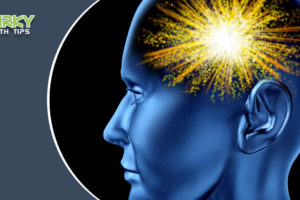


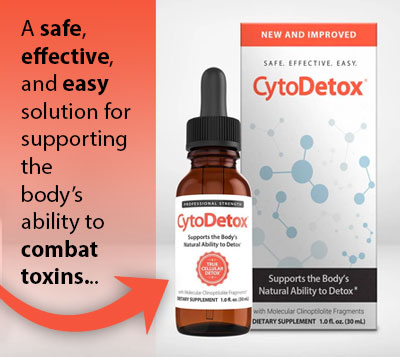
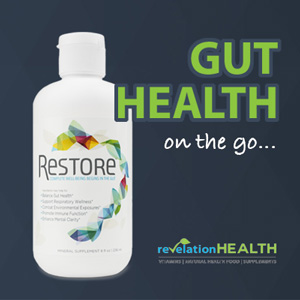
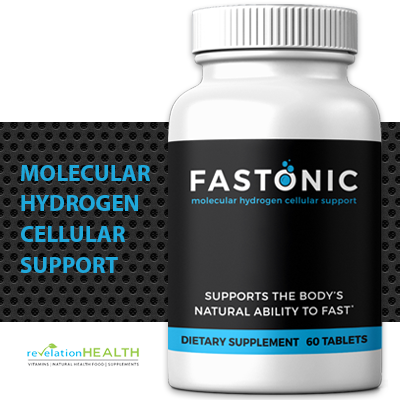
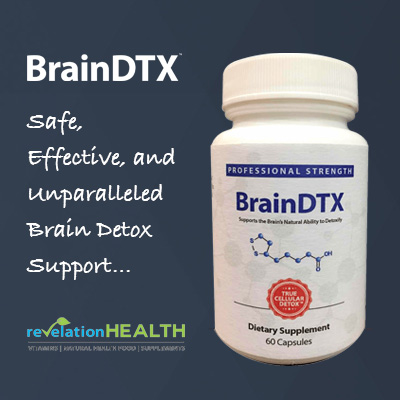
Leave a Reply
Your email is safe with us.